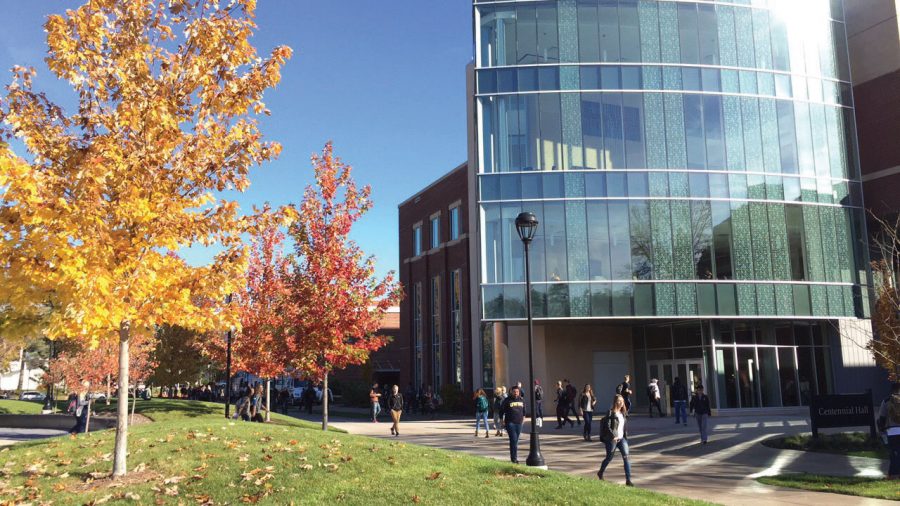Unveiling the unspoken, ever-present slavery
Human trafficking is found not only abroad, but in our own backyards
More stories from Colette St. John
Photo by Colette St. John
Nikolaus Spittlemeister, a fourth-year student, stands in the Campus Mall to protest administration for their original decision to not move to remote learning after fall break.
It’s sophomore year. School is stressful and the idea of Water Street becomes enticing as the weekend nears and the time has come to close books and laptop screens.
The bars prove seemingly successful as you end up meeting the dreamiest man and snag his phone number. Within two weeks, you talk every day and hang out often.
Soon enough, he’s officially your boyfriend. Things get serious really quick and before you know it, he’s buying you beautiful gifts and treating you like a queen. Months later, you’re convinced he’s the man you’ll marry.
Until one night changes everything.
His friends come over to “hang out” that night. But what you don’t know is the man you love is about to give you to his friends after he manipulates and coerces you.
You become convinced this is what you have to do in order to maintain the relationship. He controls you through his manipulative words and actions. Invisible chains and shackles of the mind have now overtaken.
This becomes your reality for the next six months. Your “boyfriend” is now your pimp and there is no way out, as your safety is now on the line.
Human trafficking, a modernized form of slavery, occurs when a person is forced or coerced into doing something for another’s gain, usually profit.
This issue takes root in two common forms: sex trafficking and labor trafficking.
While most cases are more commonly known to happen on foreign soil due to the susceptibility among people in impoverished nations and developing countries, this horrible form of injustice is closer to home than most would think.
In fact, the first non-profit to focus 100 percent on anti-human trafficking efforts in Wisconsin was created right here in the Chippewa Valley just four years ago.
Fierce Freedom started up in 2012 in order to educate and raise awareness of trafficking with a focus in the western Wisconsin geographic area. They speak and work with local legislation to empower and inform legislators of this injustice, increase the awareness of human trafficking in communities and educate citizens on warning signs and prevention methods.
Jodi Emerson works to fight against modern day slavery with Fierce Freedom as the director of public policy and community relations.
“It’s not like on the movie “Taken” where they snatch you and throw you into a brothel and chain you to a bed. It’s a coercion factor and a grooming process,” Emerson said. “They befriend you and get you to fall in love with them. Then, you feel like you owe them something.”
This is why it’s such a hard battle to fight, Emerson said. Victims of this crime feel they are the ones to blame for where they have ended up. Victims hesitate to call the police because “they feel at fault and at blame and don’t know how to get out of the situation they’re in,” Emerson said.
There is a certain guilt factor that manifests itself through severe manipulation and mind games a person undergoes.
Modern day slavery can happen to anyone, anywhere, Emerson said. While it’s a tough issue to solve, the best way we can fight is to raise awareness.
“It (trafficking) can affect men and women, boys and girls, all socioeconomic statuses, all ages and all races,” Emerson said. “There really isn’t a poster child for human trafficking.”
One medium that’s worked especially well, further cultivating this crime in the Midwest, is the ease and convenience for offenders to transport trafficked victims along I-94.This highway system serves as a dangerous route connecting the Minneapolis-St. Paul area, down through Eau Claire and Milwaukee and into Chicago.
“With human trafficking, it’s the fastest growing crime on the planet,” Emerson said. “If it hasn’t affected you yet, it’s going to.”











